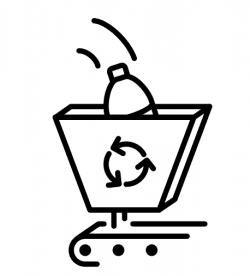After my first seminar, I want to share my answers to three prompts with you.
Why did you enroll in this course (motivation, prior interests)?
I enrolled in this course because I am really interested in sustainable development. As an IDEAS student studying mechanical engineering and environmental science, the impacts of sustainable development are especially pertinent to my major. I took Challenges of Sustainable Development last fall with Professor Orrs and found the material fascinating. I think that all engineers and business people should have a background in sustainable development so that we as a generation are able to design our world in such a way that our children and our children’s children will be able to grow up in a beautiful and resource-filled world. I wanted to take another sustainable development class because I want to learn how to work well with students and professionals whose expertise’s are in topics other than mechanical engineering. I want to collaborate with students from many disciplines and come up with solutions to real world problems. When I found out that my sustainable development class would be working with the Global Social Impact Fellows, it was really daunting at first. I felt overwhelmed by the amount of information about applying for grants and by just how real the fellows’ impact was on the world is. Then I took a baby step back, and recognized what this opportunity was: my dream job. I realized that this is exactly the type of impact I want to make on the world for a career. I think I’ve always had a little bit of “I want to save the world” in me – starting at a really early age, and this course and its collaboration with the Global Social Impact Fellows can help me do just that.
How do you envision this course making you a better IDEAS student?
As I mentioned earlier, one of the focuses of my IDEAS degree is on mechanical engineering. I think that this course can make me a better engineer because it helps me see the whole process—from diagnosing a problem, researching possible solution, to working with students in other fields like chemistry and business and then finally implementing the project over the summer during the trip to the Philippines. When studying a topic in college it is so easy to get caught up in the mechanic specifics and forget about all the other aspects that go into making a project successful. This course will help me remember that engineering isn’t the only thing that needs to work in order for a project to work. In addition to my mechanical engineering studies, I also am studying environmental science. This class, and this project in particular, will really help me be able to combine my two areas of study in a productive way. The project that my group will be working on is a recycling program that will a. help mitigate the plastic pollution problem in Manilla, the capital of the Philippines and b. help stimulate economic growth within some of the women co-ops that Lehigh is working with. I am really excited about working on the plastic project because I will be able to learn about recycling and use my engineering background to come up with a way to promote it. It is the perfect project to combine my interest in keeping our environment healthy and my studies of mechanics.
The World Health Organization estimates that over one billion people who need eyeglasses do not have access to them. The vast majority of these people live in developing countries like Kenya where there is barely one optometrist per one million people. Given the high poverty levels, access to eyeglasses is almost non-existent. Lack of proper eyeglasses severely impacts people and their livelihoods by decreasing their productivity at work, limiting or eliminating new opportunities, affecting their quality of life, deteriorating their general health and possibly leading to (preventable) blindness. What solution do you propose to address this problem?
My solution would have a couple of different aspects to it. First, to be able to get doctors and nurses to those who might need their attention, I propose that mobile doctor’s vans be put into effect in areas where people live without convenient access to medical attention. Since it is also significantly harder to train people to be doctors, I would suggest that each van have a single doctor but a couple of nurses who have a specialty in ophthalmology. Then when a van arrives in a town, the nurses would be able to care for some patients and the doctor could work more effectively. Second, this process could be more streamlined and cost effective if empty frames and some commonly used lenses were carried with the doctors in the van. This way, the glasses could be assembled on the spot and the van wouldn’t have to return to the town a second time to deliver the glasses. While this method might not provide the most accurate glasses, it is at least more beneficial for productivity than not wearing glasses at all. Wearing the wrong prescription eye glasses could lead to some headaches, but it will not damage eye health. The third aspect to my solution would be for old eyeglasses from developed nations to be donated to these vans. Not only is this a great example of recycling material, but it also could provide some of the less common prescription lenses, and it also makes the cause more visible to people in developed nations. If they know that their eye doctor is donating their old glasses to this cause, they might be more inclined to donate or to other work that could promote the travelling eye doctors.
